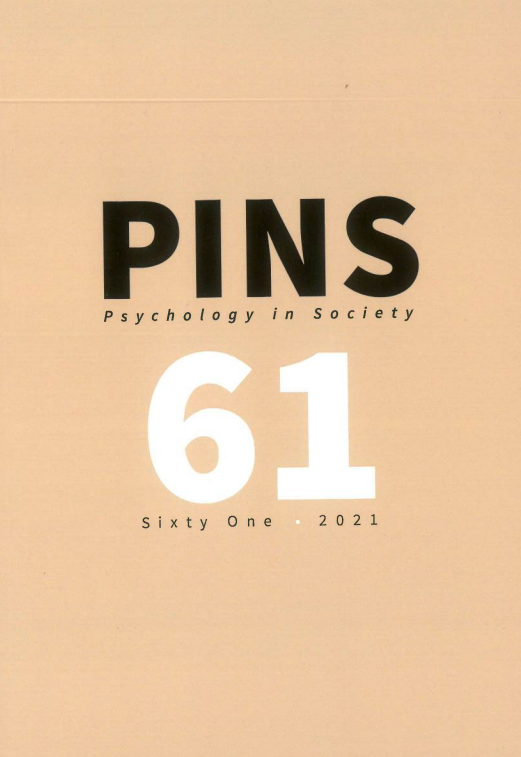Hegemonic and shamed masculinities: Implications of traumatic historical impacts on black men in a post democratic South Africa
DOI:
https://doi.org/10.57157/pins2021Vol61iss1a5592Keywords:
post-apartheid, violence, abuse, women, children, toxic masculinity, male culture, ghosts of the apartheid, theory of masculinityAbstract
The landscape of post-Apartheid South Africa is characterised by high levels of male perpetrated violence against women, children and other men with blame often attributed to victims rather than perpetrators (Hayes & Abbot, 2016). The aberrant behaviours and attitudes of men (also referred to as toxic masculinity) has been central to the notion of a so-called contemporary ‘crisis in masculinity’ with violence and risk taking behaviours (alcohol, substance abuse, sexual risk taking) embedded in male culture. While previous explanations of the ‘modern day crisis’ among men can be largely attributed to South Africa’s history of violent and traumatic struggles of domination over place, ideology and bodies, there is a paucity of work theorising this crisis from a socio-historical and psychodynamic trauma paradigm. In this vein, this paper delves into key periods of our history (referred to as ‘chosen traumas’) that have had persistent disruptive influences on particularly, black masculinity, which have collectively contributed to the modern day crisis. Our argument relies on the idea that unresolved historical traumas have a transgenerational ‘haunting’ effect on contemporary identities (Gordon, 1997; Layton, 2019). Focusing on black men who were subjected to a violent and repressive past, we have argued that ghosts of the pre-Apartheid to post-Apartheid modern day South Africa continue to have cumulative impacts on the black male psyche. It is suggested that these past traumas, together with contemporary representations of black masculinity, have led to a deep sense of unresolved shame, the dynamics of which we have attempted to illuminate using psychodynamic and masculinity theory. The paper concludes with some
recommendations on dealing with unresolved traumas and violence.
Downloads
Published
How to Cite
Issue
Section
License
This journal is an open access journal, and the authors' and journal should be properly acknowledged, when works are cited.
Authors may use the publishers version for teaching purposes, in books, theses, dissertations, conferences and conference papers.
A copy of the authors’ publishers version may also be hosted on the following websites:
- Non-commercial personal homepage or blog.
- Institutional webpage.
- Authors Institutional Repository.
The following notice should accompany such a posting on the website: “This is an electronic version of an article published in PINS, Volume XXX, number XXX, pages XXX–XXX”, DOI. Authors should also supply a hyperlink to the original paper or indicate where the original paper (http://www.journals.ac.za/index.php/pins) may be found.
Authors publishers version, affiliated with the Stellenbosch University will be automatically deposited in the University’s’ Institutional Repository SUNScholar.
Articles as a whole, may not be re-published with another journal.
The copyright of the article(s) lies with the author(s).
The copyright of the journal lies with PINS-psychology in Society.
The following license applies:
Attribution CC BY-NC-ND 4.0 - https://creativecommons.org/licenses/by-nc-nd/4.0/

